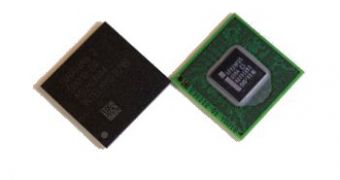With tablets getting so popular so quickly, Intel appears to have decided that it is about time it began to move faster in its making of newer and better processors, eventually making battery life a moot point altogether.
At one point in the past, performance was the prime concern of those dealing in any sort of hardware device.
After that, costs and power consumption became larger concerns, leading to the decision to find more and better ways to boost power efficiency.
For mobile electronics, power efficiency is, in fact, one of, if not the most important things to consider when designing a new phone or handset.
The same goes for laptops and, now, tablets, this being the reason ARM has been doing so well while Intel has been struggling to catch up.
Now, however, Intel has provided its first Oak Trail central processing unit, Atom Z670, and it looks like this was the start for the acceleration of its tablet roadmap.
“The newly launched Atom Z670 (codenamed “Oak Trail”) provides up-to all day battery life1 - but as Intel begins this acceleration, battery life will quickly become a moot point,” says Krystal Temple in a blog post.
“What was “all-day” will become all week or even all month battery life. Once this happens, Intel believes the key differentiation in tablets and other connected devices will be found in the features that are integrated into the silicon, and pure performance which enables a range of consumer benefits.”
Basically, the Santa Clara, California-based CPU maker wants to drive tablet chip development faster than defined by Moore's Law, until battery life is an issue no longer.
What's more, the outfit even envisions the concept of tablet itself changing, in use (healthcare, industry) and shape alike (more hybrids, with or without keyboards, should debut).
“This industry is in the early stages of development, and has yet to realize its full potential,” Temple says.

 14 DAY TRIAL //
14 DAY TRIAL //